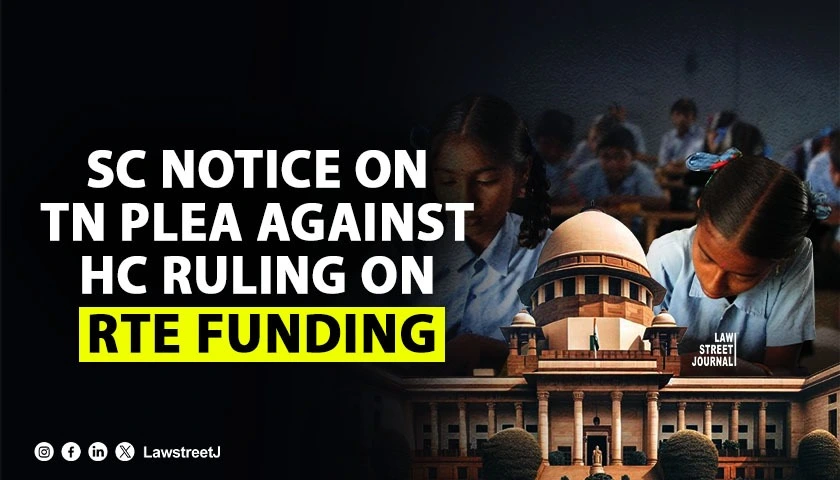NEW DELHI: The Supreme Court on Monday issued notice on a plea filed by the Tamil Nadu government against the Madras High Court's order of June 10, 2025, holding only the state is primarily responsible for the expenditures incurred for implementation of the Right to Education Act.
A bench of Justices Vikram Nath and Sandeep Mehta decided to examine the special leave petition filed by the Tamil Nadu and sought a response from the writ petitioner before the High Court.
Senior advocate P Wilson, representing the state, contended that under the Right to Education (RTE) Act, central and state governments shared concurrent responsibilities for funding education.
He argued that the Madras High Court erred in ruling that only the state is primarily responsible for these expenditures.
The High Court directed the state to bear the entire financial responsibility for the 2025-2026 academic year, while it should have also directed the central government to contribute, he submitted.
When Wilson pointed out that for the academic years 2021-2022 and 2022-2023, the central government failed to release Rs 342.69 crores, representing its 60% share for which the bench said that suit filed by Tamil Nadu is pending.
Since that period, the state has covered the entire expenditure, Wilson argued.
The state government contended that the High Court directed it to make reimbursements envisaged under the Section 12(2) of the Right to Education Act, 2009, read with Rule 9 of the Tamil Nadu Right of Children to Free and Compulsory Education Rules 2011, leading to a financial burden of Rs 314,98,01,025 upon it.
It claimed the High Court failed to consider the framework and the status of such disbursal of the obligatory financial contribution of the central government under the Samagra Shiksha Scheme and declared that the funds payable to the state government representing the central government’s share towards discharging the RTE obligations need not be linked to the National Education Policy-2020 i.e. NEP-2020.
It submitted the central government has been propagating its political agendas through the Samagra Shiksha Scheme, however, a disagreement such political ideology cannot become an obstacle for a State Government for implementing the provisions of the Samagra Shiksha Scheme and the RTE Act.
"Unless both the Central and the State Government work in unison, the provisions of the RTE Act and Samagra Shiksha Scheme cannot be implemented in their full spirit. The fundamental right to education cannot be implemented at the discretion of the Central Government. If such a practice is allowed to exist, it would cause gross violence to the fundamental rights of the citizens of the nation," the state said.
Disclaimer: This content is produced and published by LawStreet Journal Media for informational purposes only and does not constitute legal advice. The views expressed are independent of any legal practice of the individuals involved.

















